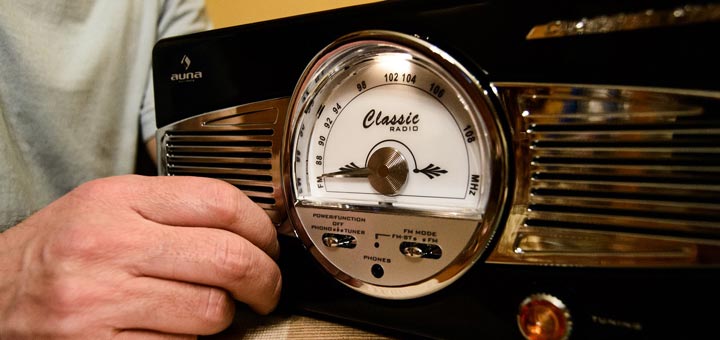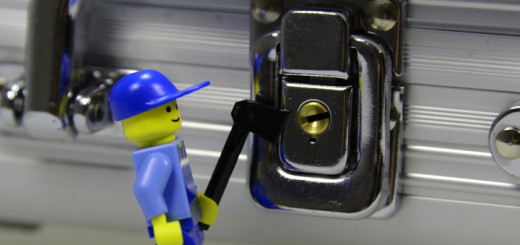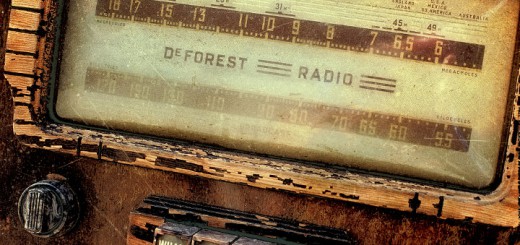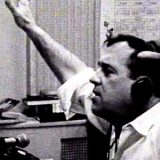The Big Switch
How do you describe yourself when you’re behind the microphone? Podcast host? Interviewer? Presenter?
Your answer may shape how well your podcasts help you achieve your goals in the future, a future that is months, not years, away.
Driven to Change
As I write this, I’m at the National Association of Broadcasters (NAB) show in Las Vegas, where a new report from Edison Research has the radio folks buzzing.
This new research shows that commuters who listen to AM/FM radio in their cars switch stations 22 times during an average commute. These commuters are searching for more appealing content, and what they find appealing is a decision that’s made on a moment-to-moment basis.
What has this radio research got to do with podcast?
Enjoy the Ride—For Now
As podcasters we benefit from the difficulty of jumping from podcast to podcast—or from podcast to some other form of audio entertainment.
But that free ride is coming to an end.
Detroit has put the pedal to the metal in an effort to develop an in-car dashboard entertainment center that puts all audio entertainment under the same user interface and user experience umbrellas. Competing for ears alongside professional podcasters and veteran broadcasters will require your offering your listeners something more than content.
Say goodbye to being a podcast host, presenter, or interviewer. It’s time to switch to being a podcast personality.
From Podcaster to Personality
Elevating yourself to the level of personality may be the toughest challenge you’ll encountered in your podcasting career. It is, however, something anyone can achieve. Granted, some people will be better personalities than others, but anybody can be a better personality than he or she is today.
While I’ve been at the NAB show I’ve taken the opportunity to ask on-air talent, radio station owners, successful podcasters, and media critics what makes a solid personality. Here’s a compendium of their answers. Think of it as your roadmap to your future behind the mic:
- Content: Pick content you can be passionate about. Personalities communicate from the heart, not from a script and not from phony emotions.
- Point of View: Personalities have a strong, and unique, point of view about the topics they discuss, even if it’s what they had for breakfast. Personalities open their mouths for one reason—to communicate their points of view to their listeners.
- Storytelling: Personalities tell stories. These stories might be as long as several paragraphs or as short as a sentence. But they all have beginnings, middles, and ends and…
- Relevance: The stories personalities tell have a payoff, and that payoff is relevant to the audience. A personality’s story may inform, educate, scare, shame, or amuse his or her listeners, but because the story is relevant it cannot be ignored.
- Build Up: Everything personalities say adds to the their stories and moves them forward. Otherwise, the stories fail the relevancy test.
- Delivery: Personalities use their voices as instruments to enhance their storytelling.
Making the switch from host/presenter to personality may be difficult, but it’s one you’ll want to make before your listeners make a switch of their own.
[jetpack_subscription_form title=”Get Every Blog Post” subscribe_text=”Enter your address to receive every new post by email.” subscribe_button=”Join Us >>”]










Would love to get your perspective on hiring a podcast host who can fit the road map above. Where does one go to find such talent?
Hi Steve…
It all depends upon the type of show you have. In general, though, I’d look at performers in improv groups and acting classes. Also, stand-up comedians in your area. You’re looking for people with both presence and flexibility. Don’t forget other podcasts. There are many good hosts and potential hosts today. Often they need a little mentoring and direction to turn them into really good hosts (and better). I’d listen to radio, too. There’s some good talent working in medium and small markets. Their stations either stream their programming or are distributed through TuneIn and iTunes. Listen in the mornings (their time) when you have the best chance of hearing live talent. These stations may be automated the rest of the day.
Hope this helps.
— jay